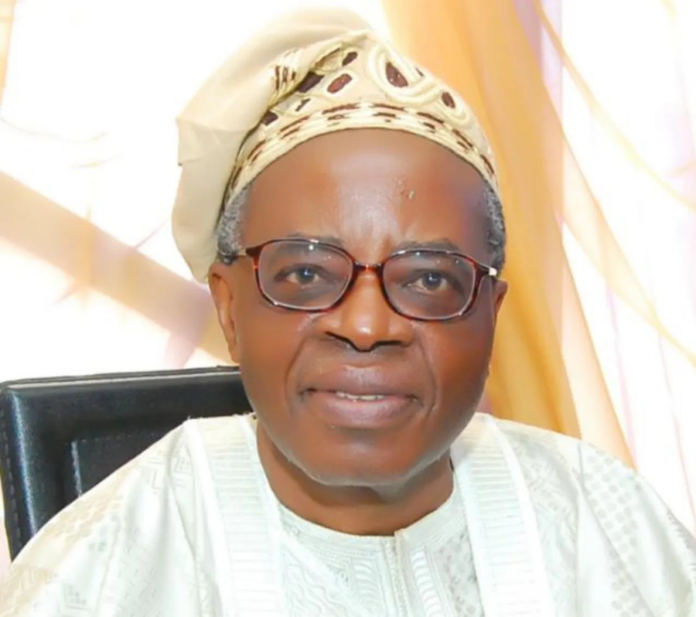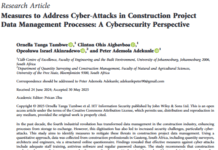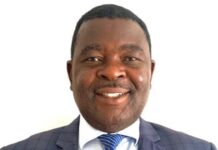 April 2025: Professor Babafemi Akinade Badejo – African Male Researcher of the Month
April 2025: Professor Babafemi Akinade Badejo – African Male Researcher of the Month
Professor Babafemi Akinade Badejo stands as one of Africa’s most accomplished intellectuals and diplomats whose life and career reflect unwavering commitment to peacebuilding, governance, and African development. A Nigerian academic, lawyer, seasoned diplomat, and public intellectual, Professor Badejo has left an indelible mark across academia, international diplomacy, and policy development over the course of five decades.
Early Life and Education
Born on March 4, 1955, in Ijebu Ode, Ogun State, Nigeria, Babafemi Badejo embarked on his academic journey at Saint Saviours Primary School and Baptist Primary School in Ijebu Ode. He then proceeded to Ijebu Ode Grammar School, before gaining admission to the University of Lagos in 1973, where he earned his first degree in political science.
His thirst for deeper knowledge led him to the United States, where he completed a Ph.D. in political science at the University of California, Los Angeles (UCLA) in 1982. Determined to integrate legal expertise into his academic and diplomatic pursuits, Badejo returned to Nigeria and earned an LL.B. from the University of Lagos. He was subsequently called to the Nigerian Bar on December 12, 1990, qualifying as a solicitor and advocate of the Supreme Court of Nigeria.
Academic and Diplomatic Career
Professor Badejo began his academic career as a lecturer at the University of Lagos, where he taught political science and mentored countless students. However, his journey soon took a transformative turn when he was invited to serve as Special Assistant to former Nigerian Head of State, President Olusegun Obasanjo, during his bid for the position of Secretary-General of the United Nations in 1991. This marked Badejo’s formal entry into international diplomacy.
In 1996, he transitioned fully into peace operations with the United Nations, a role he would dutifully uphold for over two decades. During his tenure, he worked in some of the world’s most challenging conflict zones, including Somalia, Liberia, Guinea-Bissau, and Darfur (Sudan). He played a pivotal role as Deputy Special Representative of the UN Secretary-General (DSRSG) for Somalia, helping steer peace efforts in the region during a particularly volatile period. His 11-year stay in Nairobi, Kenya, at the UN Political Office for Somalia underscored his importance as a stabilizing force in East African diplomacy.
After retiring from the UN in March 2017, Professor Badejo founded Yintab Strategy Consults (YSC), a strategic consulting firm focused on peacebuilding and governance reforms across Africa. Through this platform, he consulted for major continental bodies such as the African Union (AU), United Nations Economic Commission for Africa (UNECA), and ECOWAS, helping shape strategies for humanitarianism, security, and regional integration. Notably, he contributed to the operational design of the African Union Humanitarian Agency and advised on the ECOWAS 2050 Vision Programme.
He also served as adviser to the Office of the Prime Minister of the Kingdom of Bahrain between 2018 and 2020 and was part of Bahrain’s delegation to the UN General Assembly. Currently, he advises H.E. José Ramos-Horta, President of Timor-Leste, on matters relating to Africa, further cementing his reputation as a global African diplomat.
Research, Advocacy, and Publications
Professor Badejo is a prolific author and influential public intellectual. His academic and journalistic contributions span issues of governance, corruption, leadership deficits, political economy, and democratic theory. Among his most celebrated works is the widely acclaimed Raila Odinga: An Enigma in Kenyan Politics (2006), a political biography that became a bestseller and a seminal text on Kenyan politics.
His recent publications have introduced novel conceptual frameworks such as the Situational Quadruple Nexus Analysis, aimed at explaining the complex interactions between peace, security, development, human rights, and humanitarianism in Africa. In Nigerians’ Views on National Turmoil, he explores the intersection of these factors in Nigeria’s socio-political landscape.
In his newest work, “Nigeria Corruption Perception Data”, Professor Badejo develops the 3x3x3 Approach to understanding the corruption epidemic in Nigeria—highlighting its entrenchment across the three arms of government, three tiers of government, and three sectors of society (public, private, and civil). He describes this form of systemic corruption as a “pandemic”, more pervasive than COVID-19 and dangerously normalized in Nigerian society.
Professor Badejo also offers a critical lens on democratic governance in Africa. He challenges the simplistic conflation of civil rule with democracy, contending that Nigeria’s current political system fails to meet the basic tenets of democratic governance due to flawed elections, leadership gaps, and institutional weaknesses.
Nelson Mandela Distinguished Africanist Award (2025)
In a fitting tribute to his lifetime of service and scholarship, Professor Babafemi Badejo was conferred the 2025 Nelson Mandela Distinguished Africanist Award at a ceremony held at the University of Texas, Austin. The award, named after the iconic South African leader Nelson Mandela, honours individuals who have demonstrated enduring commitment to African liberation, human rights, freedom, and good governance.
Past recipients include luminaries such as Professor Bonny Ibhawoh of McMaster University (2018) and Professor Abdul-Rasheed Na’Allah, Vice-Chancellor of the University of Abuja (2024). Professor Badejo joins this illustrious circle, with the award coinciding with his 70th birthday—a significant milestone marking decades of intellectual and diplomatic excellence.
In his acceptance speech, Professor Badejo expressed deep gratitude, stating:
“To be recognised in the name of Nelson Mandela—an enduring symbol of Ọmọluabi, Ubuntu, courage, resilience, justice, and African dignity—is truly remarkable.”
Personal Life and Legacy
Professor Badejo is married to Adejumoke Odusanya, and together they have raised four children and several grandchildren. They co-founded Yintab Private Academy, which offers comprehensive education from crèche to senior secondary school in Nigeria.
An avid chess enthusiast, he established the Femi Badejo National Chess Tournament through the Femi Badejo Foundation, promoting strategic thinking and youth development across Nigeria.
Conclusion
Professor Babafemi A. Badejo exemplifies the ideal of the scholar-diplomat—one who not only interprets the world but actively works to change it. His extraordinary career across academia, diplomacy, and public service stands as a testament to what visionary leadership, intellectual courage, and a deep love for Africa can achieve.
As he continues to mentor new generations of African thinkers and policymakers at Chrisland University, his legacy endures in classrooms, conflict zones, policy circles, and the hearts of those inspired by his life’s work.
















 The African Research (AR) Index is a comprehensive scholarly directory and database focused explicitly on journal publishers that publish and disseminate African research.
The African Research (AR) Index is a comprehensive scholarly directory and database focused explicitly on journal publishers that publish and disseminate African research.

